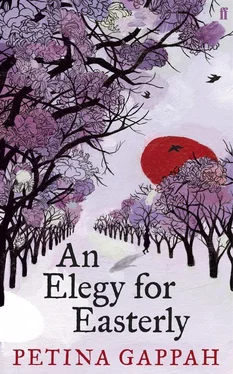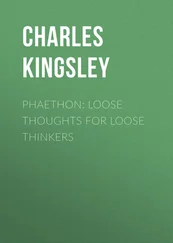Petina Gappah - An Elegy for Easterly
Здесь есть возможность читать онлайн «Petina Gappah - An Elegy for Easterly» весь текст электронной книги совершенно бесплатно (целиком полную версию без сокращений). В некоторых случаях можно слушать аудио, скачать через торрент в формате fb2 и присутствует краткое содержание. Год выпуска: 2009, Издательство: Faber & Faber, Жанр: Современная проза, на английском языке. Описание произведения, (предисловие) а так же отзывы посетителей доступны на портале библиотеки ЛибКат.
- Название:An Elegy for Easterly
- Автор:
- Издательство:Faber & Faber
- Жанр:
- Год:2009
- ISBN:нет данных
- Рейтинг книги:4 / 5. Голосов: 1
-
Избранное:Добавить в избранное
- Отзывы:
-
Ваша оценка:
- 80
- 1
- 2
- 3
- 4
- 5
An Elegy for Easterly: краткое содержание, описание и аннотация
Предлагаем к чтению аннотацию, описание, краткое содержание или предисловие (зависит от того, что написал сам автор книги «An Elegy for Easterly»). Если вы не нашли необходимую информацию о книге — напишите в комментариях, мы постараемся отыскать её.
An Elegy for Easterly — читать онлайн бесплатно полную книгу (весь текст) целиком
Ниже представлен текст книги, разбитый по страницам. Система сохранения места последней прочитанной страницы, позволяет с удобством читать онлайн бесплатно книгу «An Elegy for Easterly», без необходимости каждый раз заново искать на чём Вы остановились. Поставьте закладку, и сможете в любой момент перейти на страницу, на которой закончили чтение.
Интервал:
Закладка:
‘Rambanai is somewhere in Birmingham,’ her brother Thomas said the first time I called him. Then she was in Newcastle, then Leicester, then back in London. Our emails bounced into empty air, our phone calls went unanswered.
In the end, we got our visas the same way Rambanai had got her passport, we used the Harare way — someone knew someone in the British embassy with whom we exchanged envelopes stuffed with cash. I gave up teaching and Jimmy engineering to be in England, where the curse of the green passport condemned us to work in the unlit corners of England’s health care system, in care homes where we took out the frustrations of our existence by visiting little cruelties on geriatric patients. I thought often of Ba’muniniBa ’Thomas who had believed that education would guarantee our future.
Even as my ears took in the sounds of London, the cries to help the homeless help themselves, buy the Big Issue , the preacher at Oxford Street station who spoke of hell and damnation in such soft tones he may as well have been advertising a weekend at a holiday camp, the thundering sound of the train between underground stations, I listened to my heart as it spoke of Rambanai. Then I saw her, on a biting February morning on an escalator at Liverpool Street station when my frozen thoughts were on the care home job that awaited me at the end of the Jubilee line. She was on an escalator going in the opposite direction, her coat bright pink among the hues of London’s black-clad. The joy in my voice was sincere as I called out her name. She looked up and beamed like I was the very person she expected to see sliding up the escalator at Liverpool Street.
‘Hey, Matilda,’ she cried, and tried to reach out across the space between the escalators. I reached out too and we clung to the edges of the moving stairs, our hands passing without meeting.
We laughed at our failure.
‘I’ll wait for you at the top,’ I said to her.
‘I’m running late and I have to catch my train, yeah,’ she shouted, ‘but make sure you call me, all right? Call me, yeah? Tonight, yeah?’
On that escalator at Liverpool Street station, under the gimlet stares of the suited ones, all I could say was a faint okay that I am not sure reached her. Only as I watched her glide down past the framed adverts for Queen the musical and the latest Harry Potter did it occur to me that I did not have her phone number. By this time, she had disappeared from my view and I imagined her, a chameleon in pink, pushing her way among the dark shapes on the platform, fighting to get onto the train in the rush hour.
The Negotiated Settlement
Thulani did not immediately notice the darkness. Only when he was in the house and reached for the wall switch in the entrance corridor to produce an empty click did he realise that there was no electricity. Load shedding. He walked to the kitchen, singing snatches of Oliver Mtukudzi, ‘ Zvimwe hazvibvunzwi, zvimwe hazvibvunzweiwe .’
After all these years in Harare, his Ndebele tongue still couldn’t get around the Shona zv and nzw sounds. It probably never would. He abandoned singing, and hummed as he groped for a candle where they kept them above the fridge. He lit one and opened the microwave oven. Isitshwala and stewed meat and leaf vegetables again. He had to unpeel the skin from the isitshwala to eat it. It had the smoky taste of food cooked over an open fire. The meat was cold and the vegetables clammy in his mouth. He washed his meal down with the remaining half-pint of Pilsener that he had smuggled out of the Mannenberg. It was warm from being cradled between his legs on the drive home.
‘Dinner by candlelight,’ he said.
He found this funnier than it was, and chuckled. He hummed more Oliver as he ate. Eleven mouthfuls later, the candle in his hand cast his shadow against the wall as he walked into the bedroom. The candlelight flickered over the outlined shape of his sleeping wife. He removed his shirt and trousers, leaving them in a heap on the floor and got into bed. His wife shifted in her sleep towards his side of the bed. Thulani felt a stir of desire, but it was a flash only, it died as quickly as it rose. He lay back and tried to recapture his earlier ebullience. What was that joke Themba had told again? He should have been more serious with Themba, it looked like he was really going to marry that woman.
‘You do not need to do this,’ he had said to him, but Themba had only laughed and said vague things about settling down. He should have been firmer, he should have told him that settling down was simply settling, that he was giving permission to fate to stifle him and kill all his freedom.
‘There’s the padlock, see.’
He struggled to remember where those words came from. He gave up the effort, and it came back to him. Arabella, showing off her wedding ring after the remarriage to that poor bastard, Jude Fawley. He hadn’t thought about Jude the Obscure since the last time he read it, almost nineteen years ago, when he had had to cram it for a literature exam. Another passage came to him now as he tried to find sleep: ‘Take her all together, limb by limb, she’s not such a bad-looking piece — particular by candlelight.’
He got up. His wife slept on. Picking up his discarded clothes, he moved into the lounge and dressed himself again. In the darkness, he stretched out on the three-seat sofa. Just after they had bought it six years ago, he had tried to make love to Vheneka on this sofa, anything to kill the monotony, but she had said, no, no, the kids, and he had not tried again.
He went over to the bookshelf, and got down his secret stash of cigarettes. He lit one and lay back on the sofa. His thoughts drifted as he smoked. He saw in his mind’s eye his wife’s naked body, the breasts, the protruding stomach, the scar of Nkosana’s Caesarean.
‘First you undo me this scar, then we can talk about divorce,’ she had said, when three years ago, in a moment of unbearable suffocation he had asked for his freedom. He had not talked about it again.
Had he really wanted to leave? There seemed nothing active about his life now. He no longer desired her, no longer thought about returning home, surprising her, no longer sought her first thing in the morning. He remembered how beautiful she had been to him once, and even now, she could surprise him sometimes, when unexpected, the scent of her came to disturb him, and she turned, and laughed, and he saw, beneath the puffed cheeks and strange hairstyle of the moment, the girl he had seen at the Students’ Union.
He had wooed her on walks to Avondale, with Chinese food and combo-packs from Chicken Inn. Flowers from Interflora and movies at Kine 600. He had endured the endless ragging of his Bulawayo friends who mocked him for falling for a Shona chick, but even they had to admit that she was so beautiful she could have been Ndebele. On the night of her twentieth birthday, he had taken her to Gabrielle’s, but she wanted to go to the Manchurian. The forty dollars he had saved for this night felt suddenly light in his pocket and when the bill came, his insides turned to water.
He would leave his ID card, he had resolved, and was just about to go over to talk to the waiter when she put her hand on his.
‘We can share the cost,’ she said. He had protested of course, but not too much, and eventually had given in. They had held hands all the way back to the university, and later, in Manfred Hodson Hall, in the room he shared on P corridor with Xholisa Bhebhe, on a narrow bed sagging from the sex of all the students that had come before them, they conceived their first child.
He had not meant to marry at twenty-one, but that first pregnancy had left him with no other honourable option. The consolation had been the sex. He had enjoyed feeling superior when he heard his fellow-students’ desperate searches for sex. Not for him the prowls through the townships, looking for easy lays that opened their legs at the flash of a university student identity card; or the hours drinking at the Terraskane Hotel to summon the courage needed to approach a woman and take her to the Welcome Lodge opposite, where ‘resting for thirty minutes’ was sixty dollars and ‘resting for an hour’ was a hundred. Thulani had been spared this search. He had a woman with whom he could have endless legal sex.
Читать дальшеИнтервал:
Закладка:
Похожие книги на «An Elegy for Easterly»
Представляем Вашему вниманию похожие книги на «An Elegy for Easterly» списком для выбора. Мы отобрали схожую по названию и смыслу литературу в надежде предоставить читателям больше вариантов отыскать новые, интересные, ещё непрочитанные произведения.
Обсуждение, отзывы о книге «An Elegy for Easterly» и просто собственные мнения читателей. Оставьте ваши комментарии, напишите, что Вы думаете о произведении, его смысле или главных героях. Укажите что конкретно понравилось, а что нет, и почему Вы так считаете.












